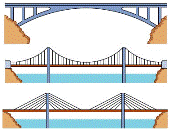Civil and Environmental Engineering, Department of

Department of Civil and Environmental Engineering: Faculty Publications
Document Type
Article
Date of this Version
2016
Citation
Nouha et al., J Pet Environ Biotechnol 2015, 7:1
http://dx.doi.org/10.4172/2157-7463.1000255
Abstract
Bacterial exopolysacchrides (EPSs) are produced by many bacteria. Nowadays there is an increasing interest in the isolation and exploitation of these polymers for industrial purposes. In general, biosynthesis of EPS varies from one strain to other strain and it depends on genes and enzymes involved in EPS production and secretion. In this study, EPS producing strains were isolated from municipal wastewater treatment plant and their potential of EPS production was evaluated. The role of EPS in sludge flocculation was also studied. Three types of EPS (LB-EPS (Loosely bound EPS), TB-EPS (Tightly bound EPS) and B-EPS (broth EPS)) were harvested and their characteristics were studied. The bioflocculation capacity of the obtained EPS was evaluated by measuring the kaolin clay flocculation activity. The LB-EPS was better than TB-EPS and B-EPS for bioflocculation.


Comments
© 2015 Nouha K, et al. This is an open-access article distributed under the terms of the Creative Commons Attribution License